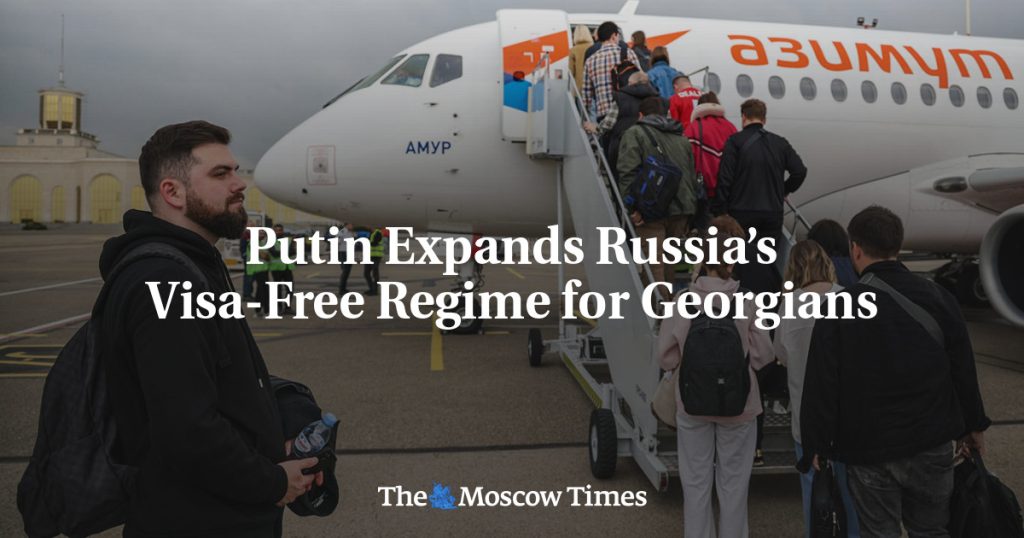President Vladimir Putin recently signed a decree to extend Russia’s visa-free regime for Georgian citizens, a significant development in the countries’ evolving relationship. The move comes after years of strained ties following the 2008 war between Georgia and Russia over separatist territories. In May 2023, Putin introduced a 90-day visa-free regime for Georgians and lifted a flight ban, with his latest decree now abolishing the 90-day limit and the need for Georgians to obtain a work visa. This decision marks a significant change and signals a thaw in relations between the two nations.
Since the 2008 conflict, Georgia has endeavored to strengthen ties with the West, particularly seeking to join the European Union and NATO. However, relations have been strained after Georgia declined to join sanctions against Russia following the 2022 invasion of Ukraine and passed a controversial law seen as resembling Russia’s “foreign agent” legislation. The European Union has responded by canceling €121 million in EU funds for Georgia due to concerns about the country’s “democratic backsliding.” The geopolitical landscape surrounding Georgia’s relationships with both Russia and the West remains complex and multifaceted.
The lifting of the flight ban in 2023 was met with mixed reactions in Georgia. The government welcomed the decision while ceremonial president Salome Zourabichvili criticized it as a “provocation.” With Putin’s recent decree expanding the visa-free regime for Georgians, it remains to be seen how various political figures in Georgia will respond. The evolving dynamics between the two nations reflect a delicate balance of political, economic, and diplomatic interests that continue to shape their relationship.
Despite these positive developments in the Russia-Georgia relationship, challenges remain. The decision to extend the visa-free regime for Georgians comes amidst ongoing tensions and complexities in the region. The ban on direct flights between Moscow and Tbilisi, imposed in 2019 over protests against a Russian lawmaker’s visit, underscored the lingering issues that still exist between the two countries. The recent steps taken by Putin may signal a desire to ease tensions and improve relations, but the broader geopolitical context will likely continue to influence the dynamics between Russia and Georgia.
The decision by President Putin to extend the visa-free regime for Georgians represents a significant gesture of goodwill, signaling a willingness to engage and cooperate with Georgia. This move could have positive implications for economic and cultural exchanges between the two countries, potentially fostering greater understanding and cooperation. However, the broader political context, including Georgia’s aspirations to align with Western institutions and Russia’s geopolitical ambitions, will continue to shape the relationship between the two nations. The future trajectory of Russia-Georgia relations remains uncertain, with ongoing complexities and challenges that will need to be navigated carefully by both sides.


